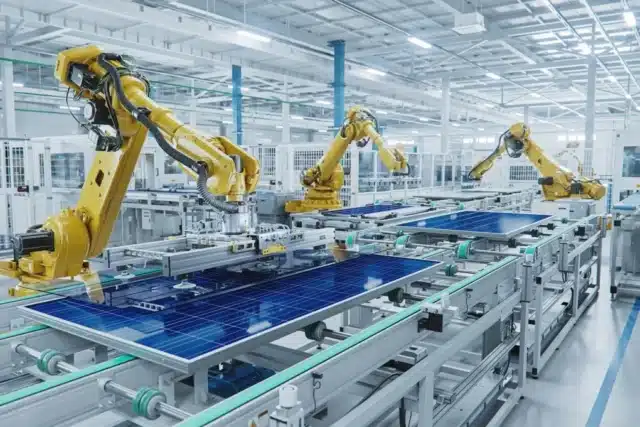The Challenges and Opportunities of Sustainable Business Innovation

November 30, 2023
The increasing awareness of social and environmental pressures on companies are driving sustainable business innovation. Rather than see sustainability as a burden, forward-thinking companies are recognizing the opportunities it presents for competitive advantage.

While adopting sustainable business innovation practices does involve overcoming common hurdles, the potential for value creation and competitive advantage through sustainability-driven innovation is immense yet often untapped. This article explores the core challenges companies face when pursuing sustainability along with the many opportunities that sustainable innovation presents across strategy, operations, technology, and business models. By assessing both angles, we can better understand how leading organizations turn sustainability into an engine for long-term success.
What is sustainable innovation
Innovation plays a crucial role in business growth and long-term success. Sustainable innovation refers to the act of continuously improving products, processes, and the workforce to create a brighter, more sustainable future. It involves developing new ideas, technologies, and business models that benefit the environment and society while also advancing economic prosperity. Sustainable innovation aims to meet the needs of the present without compromising the ability of future generations to meet their own needs.
At its core, sustainable business innovation is about finding ways to do more with less. It is about increasing efficiency and reducing waste while delivering products and services that provide value to customers. Companies that embrace sustainable innovation look for opportunities to reuse, recycle, and reclaim materials across product life cycles. They also look to develop renewable sources of energy to power operations. Workforces are trained in sustainability practices and engaged in coming up with ideas for improvement. The goal is to embed sustainability into the DNA of the business.
The challenges of sustainable business innovation
Implementing sustainable business practices presents numerous challenges for companies today. While sustainability is a growing priority, making major changes to business models and operations involves navigating complex obstacles. Understanding sustainable innovation challenges is key for organizations looking to innovate their sustainability strategies.

High upfront costs and long-term payoffs
One major barrier is that sustainability initiatives often require significant upfront investments, while the returns may take years to realize. Installation of renewable energy systems, green building renovations, supply chain transformations, and other efforts can be capital-intensive. Since the payback periods are longer, some companies struggle to justify these investments. A long-term mindset and patience are necessary.
Difficulty measuring and demonstrating sustainability
It can be difficult for companies to accurately measure, track, and report on sustainability metrics. While frameworks exist, quantifying carbon emissions, energy savings, waste reduction, and other impacts remains a challenge. Without clear sustainability data, organizations struggle to demonstrate the impact of their efforts both internally and to external stakeholders. More maturity in measurement practices is still needed.
Resistance to change from established industries
In some sectors, the push for sustainability threatens established models and norms. The transition away from fossil fuels, for example, faces opposition from powerful incumbent interests. Overcoming institutional resistance requires determination and a compelling vision for sustainable transformation. Progress may need to start small before being able to gain broader momentum.
Hard to reconcile economic and sustainability goals
A persistent obstacle is balancing sustainability with profits, growth, and other economic goals. Some green initiatives save money or fuel growth, but others require tradeoffs. Companies need strategies to align innovation and sustainability with core business objectives so that they are complementary rather than competing priorities. This integration remains tricky for many organizations.
Complexity from diverse stakeholder demands
Business sustainability involves understanding the needs of diverse groups, from shareholders and employees to customers, regulators, and local communities. Balancing these varied interests adds layers of complexity to sustainability strategies. Open communication and collaboration are essential, though reconciling competing demands remains an ongoing process.
Uncertain outcomes from radically new models
Pursuing innovative sustainability models involves risks and unknowns. Radical product, service, technology, and business model innovations require a tolerance for failure and experimentation. The outcomes of nascent solutions like the circular economy, regenerative agriculture, and agile manufacturing contain uncertainty. However, their potential impact merits pushing boundaries.
The opportunities of sustainable business innovation
While challenges exist, implementing sustainable business innovation also opens up new opportunities for businesses. Forward-thinking companies can gain advantages through sustainability-driven innovation.

Competitive advantage from new capabilities
Leading in sustainability can be a differentiator that sets businesses apart. Developing expertise in renewable energy, resource efficiency, life cycle analysis, and other capabilities can become a source of competitive advantage. Sustainability leaders are perceived as innovators, earning prestige and customer loyalty.
Cost savings through efficiency gains
Many green initiatives also deliver significant cost savings through energy efficiency, waste reduction, and conservation. Investments in equipment upgrades, data analytics, automation, and other efforts can generate major reductions in operating expenses. The financial benefits are both immediate and lasting.
New products, services, and business models
Sustainability opens doors for new offerings that meet emerging consumer, regulatory, and societal demands. Electric vehicles, renewable energy services, recyclable packaging, and sharing platforms are examples of innovations driven by sustainability. New models like product-as-a-service can also be springboards for strategic growth.
Improved brand reputation
Sustainability helps boost brand reputation with consumers, investors, and other stakeholders. Companies recognized as sustainability leaders often benefit from increased trust, admiration, and loyalty. They are perceived as purpose-driven organizations on the cutting edge.
First-mover advantage in emerging technologies
Getting ahead in developing breakthrough clean technologies can provide a competitive edge. Businesses that lead in commercializing advances like green hydrogen, carbon capture, and sustainable aviation fuels position themselves to reap the benefits first. It allows them to set the standards in new tech domains.
Access to new markets and partnerships
A commitment to sustainability opens doors to new partnerships, customers, and markets. Like-minded organizations seek out sustainability champions to work with, providing access and. Leadership in green business is a gateway for attractive collaborations across sectors.
Radical innovation that challenges the status quo
Ultimately, pioneering sustainability solutions requires a willingness to shake up existing models and practices. Companies that want to lead must challenge norms in order to make a real impact. While uncomfortable, this rule-breaking spirit often births disruptive solutions. Sustainable business opportunities necessitate courage, visionary leadership, and persistence.
Pursuing innovation for sustainability demands much from companies but also offers great promise. There are certainly challenges inherent to implementing impactful yet profitable sustainability strategies. By offering expertise in strategic planning and dynamic capability development, Talentnet’s services will aid businesses in navigating challenges effectively.
Besides, the opportunities for value generation, differentiation, and growth through sustainable business innovation make confronting these hurdles worthwhile. With strategic intent, commitment to developing dynamic capabilities, and collaboration across sectors, businesses can lead the way. A sustainable future will be built by those recognizing that sustainability drives innovation. Talentent’s services can play a crucial role in this journey.




